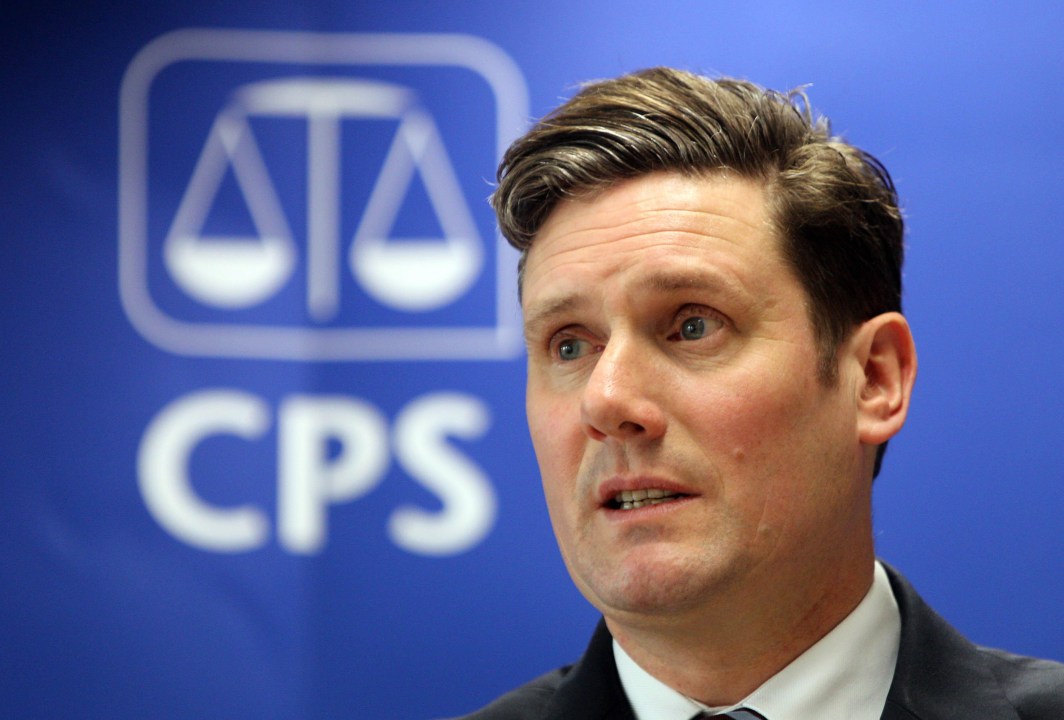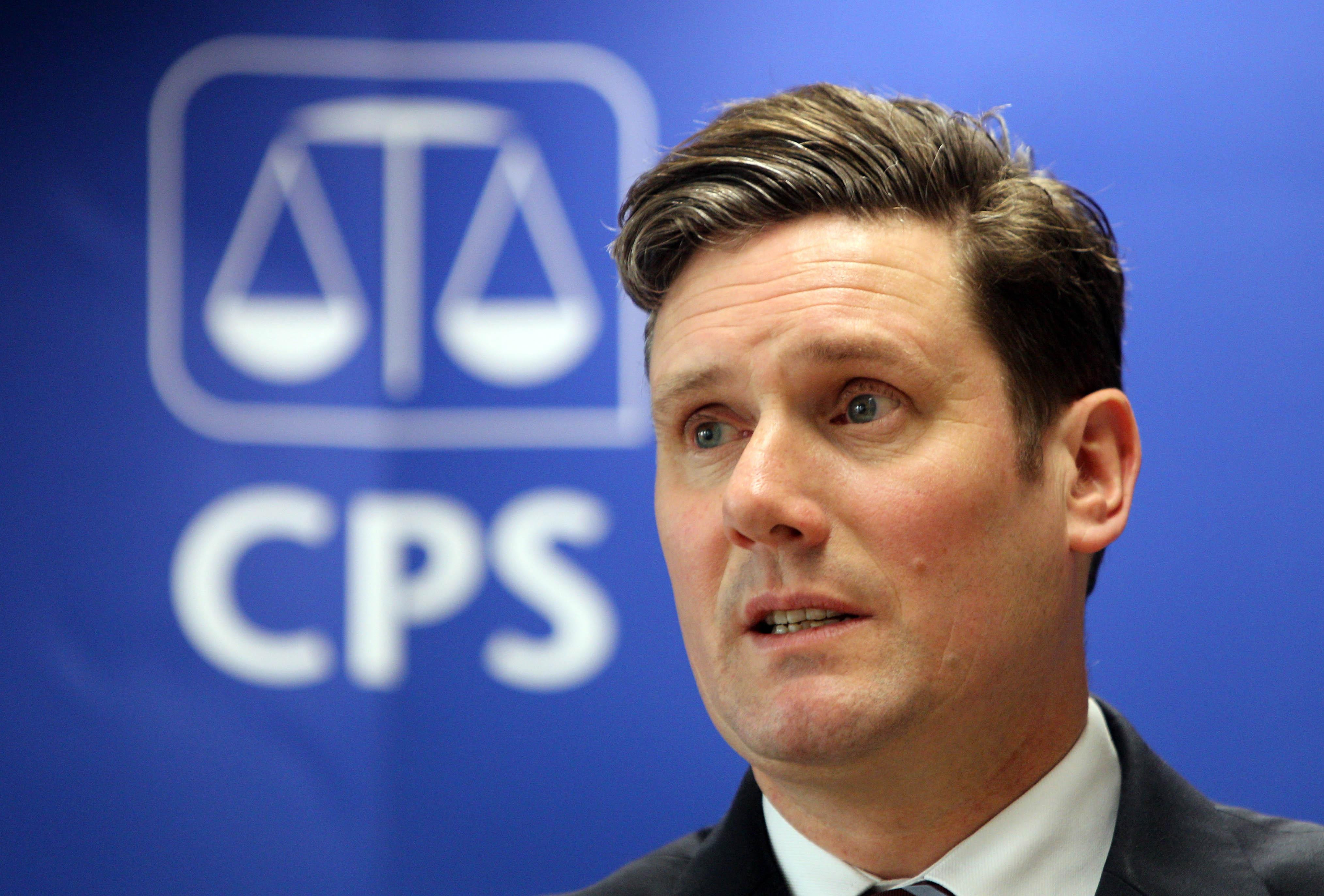On Monday evening Sir Keir Starmer tweeted an explanation for why Labour would not be supporting the Police, Crime Sentencing and Courts Bill.
Coming from a former director of public prosecutions this was dire stuff. First, and perhaps least importantly, the word ‘statues’ does not appear in the Police, Crime and Sentencing Bill.
Sir Keir knows this.
What the Bill proposes is that where criminal damage is caused to a ‘memorial’ there should be no minimum financial limit before the case can be tried in the Crown Court, where the maximum sentence is ten years imprisonment. In practice, such a sentence has never, so far as I am aware, been imposed unless the damage involved arson or a risk to life (when an aggravated version of criminal damage is charged).
Sir Keir knows that.
The Bill’s definition of ‘memorial’ would include statues only if they have a ‘commemorative purpose’, so for example the Cenotaph or a local war memorial would be a ‘memorial’ but a statue of gambolling nymphs with no commemorative purpose would not be. In neither case under the proposed law is there, in practice, the slightest risk of a ten year prison sentence for causing minor damage. Many people might think that a three month sentence for the deliberate desecration of a war memorial could sometimes be too short.
I would be surprised to hear Sir Keir arguing otherwise.
His assertion that ‘Rape = 5 years in prison’ is nonsense. Rape almost always attracts a sentence longer than five years. According to the Justice Minister Robert Buckland, the ‘average’ rape sentence is 9 years and 9 months. Some rapists receive life sentences.
Sir Keir obviously knows this.
Nor does the Bill make life easier for rapists. On the contrary several of its provisions ensure that those convicted of sexual offences will serve much longer in prison than they do at present. Insofar as it says anything about rapists, the Bill will result in them, and many other criminals too, being punished more severely.
Sir Keir would know this if he had read the Bill.
His tweet seems to have been the opening shot of an organised campaign to make rape a political battleground. On Tuesday the party tweeted — presumably on Sir Keir’s authority — that ‘under the Tories, rape has effectively been decriminalised. 55,000 rapes reported to the police. 1,867 rapes charged.’
Again, this is extraordinarily disingenuous, even if it is literally true. As Sir Keir knows, the decision on whether to bring a criminal charge, whether of rape or anything else, is not made by politicians but by the Crown Prosecution Service which he once led.
‘The Tories’ can of course make sentences harsher — which they have done repeatedly and are now doing again. They can introduce yet more laws designed to make it easier for rape defendants to be convicted, which they have also done, for example by activating a previously dormant law permitting rape complainants to record the entirety of their evidence, including their cross-examination, in advance of the trial.
What they cannot do is interfere in CPS charging decisions.
Sir Keir knows this better than almost anyone in the country and would have been the first to object if the government had tried to interfere in his charging decisions when he was director of public prosecution.
By chance, this week the Court of Appeal gave judgment in a case brought by the End Violence Against Women Coalition against the current Director of Public Prosecutions. Unlike Sir Keir, the campaigners did not accuse the government, still less ‘the Tories’ for not charging enough suspects, they accused the CPS.
End Violence Against Women Coalition lost the case, with the Lord Chief Justice noting that in 2016 the CPS had been criticised by its own inspectorate for being unduly gung-ho about prosecuting weak cases — or as he more diplomatically put it, applying a test for charging which ‘impermissibly lowered the threshold for prosecution’. The CPS had accepted the inspector’s criticism, noting that some prosecutors had developed an ‘over-zealous approach to cases which did not have a reasonable prospect of success’. Oddly enough some of this undue zealotry began when Sir Keir was the DPP. In any case, a correction was needed, and the result has been a reduction in the number of weak rape cases charged.
If Sir Keir had followed the case, and it would be surprising if he had not, he would have known this too.
Whether the adjustment to CPS charging practice was a good thing or a bad thing may be debatable — some might argue that more weak cases should be brought and never mind if a few more innocent men are wrongly charged or convicted — but it certainly was not ‘decriminalising rape’ and in any case it has nothing whatever to do with ‘the Tories’.
Sir Keir knows that too.
Tactically Sir Keir’s campaign may win him a few supporters. Strategically it is not so clever. He is not much loved by his party or by the country, but he has worked hard to establish a reputation as serious, honest and principled.
What Sir Keir does not seem to have grasped is that this slippery and misleading campaign is a very good way of destroying that reputation.







Comments